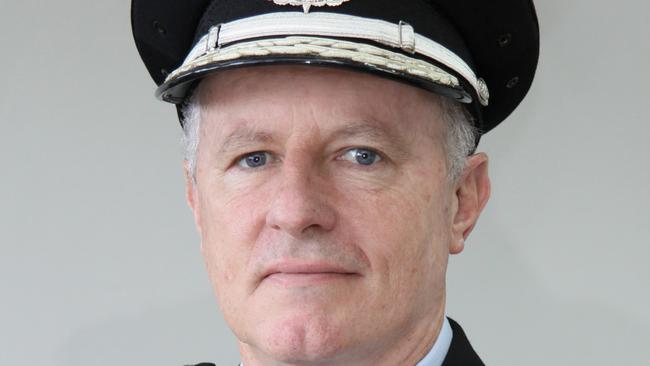Westpac eyes ANZ-Suncorp saga for acquisition clues
Westpac eyes ANZ-Suncorp saga for acquisition clues, while outgoing chairman John McFarlane apologises to shareholders, customers and employees at his last AGM.

The Australian Competition Tribunal decision on ANZ’s $4.9bn takeover of Suncorp’s bank will shape Westpac’s own strategic plans regarding acquisitions of smaller rivals, chief executive Peter King said.
ANZ and Suncorp are appealing a decision by the Australian Competition and Consumer Commission (ACCC) to scupper the deal on the basis that it risks hurting competition and entrenching the huge power of the big four banks.
Asked at the annual shareholders meeting whether there were plans to expand Westpac’s regional foothold by acquiring smaller rivals such as Bank of Queensland or Bendigo Bank, Mr King said “we don’t have any plans today,” he said.
“But we will learn a lot about how the regulators think about bank mergers, and I think that will guide the future for industry consolidation going forward.”
The four majors control about three quarters of lending and deposit-taking in Australia. Westpac has about 21 per cent market share and ANZ has the smallest share out of the four at about 13 per cent.
In hearings at the tribunal ANZ argued the deal would not undermine competition given the target is a relatively small player with less than 2 per cent of banking assets.
Regardless of the outcome, the tribunal decision could reshape the banking sector for years to come, with Bendigo arguing its own merger with Suncorp Bank would be better for competition.
Bankers and advisors believe the upcoming decision could encourage other big banks to bid for the smaller regionals, which are facing several headwinds including higher funding costs, lower credit growth and a need to invest in technology to keep pace with peers.
“Were that to happen,” said Westpac outgoing chairman John McFarlane - referring to a potential decision to takeover one of the regionals - “my advice to my successor and to Peter … is: integrate it straight away,” he said.
“Don’t leave it for several years before you do it,” he said, in a reference to decisions by Westpac’s previous management teams not to bite the bullet and invest in the integration of St George systems when it acquired it more than a decade ago.
“We didn’t integrate those acquisition technologies and processes in the past, which has caused really, quite a cost burden on the organisation,” Mr McFarlane said.
In his last address to shareholders, Mr McFarlane also apologised for the rollercoaster ride Westpac shares have had since he took the reins in 2020, but said he believed the bank was now ready for its next transformative phase.
After making “good progress” in fixing serious risk management issues during the past four years, the bank is “now set up for the journey beyond.”
It is the last time McFarlane presides over the bank’s AGM, as Steven Gregg, the chair of oil refiner Ampol, took over the reins on Thursday when he was confirmed new chairman via a shareholder vote.
“I am conscious the past few years have taken their toll on our share value, which I regret,” he said. “We have taken, and are taking further action to correct this, and believe it will achieve the desired outcome.”
Westpac shares have gained 38 per cent since they were trading around $16 each in April 2020, when Mr McFarlane joined the bank at the height of the pandemic and as it faced a record-breaking anti-money laundering fine and other regulatory investigations.
Higher interest rates have pushed bank profits higher and helped drive a recovery in their shares. But in the past year Westpac stock has underperformed peers and has the least backing from local institutional investors.
Their $22.3 per share closing price on Thursday is more than two-fifths below their $39.8 peak in early 2015.
Westpac has recently spent about $2bn a year to improve its risk and operational controls, and comply with regulatory orders, and has strived to simplify its operations, selling 10 units.
Going forward, the bank hopes to put most of its investment into finally integrating its complex net of systems and move to a more efficient technology platform.
“I’m pleased to report we are on track to complete all activities under the integrated plan by the end of this calendar year,” Mr McFarlane said.
“Beyond this current year, we intend to direct investment to other strategic priorities.”
Mr McFarlane thanked shareholders “for staying with us through what has been an incredibly difficult and turbulent time for the group, but I believe it will pay off,” he said.
“I genuinely believe we have made progress as a group, that we have seen the worst,” he said, adding the bank still needed “further improvement” as it remained “operationally and technologically complex compared to peers.”
“Notwithstanding near-term uncertainties on the economic front, and the scale of investment required to undertake a major program, looking beyond these, I am confident that for Westpac, the best is yet to come.”
Mr McFarlen also apologised to customers for a recent 8-hour outage that left mobile and online banking users unable to access the bank’s services.
He apologise too, to employees, after confirming the bank last week sent unauthorised payroll data of a large number of employees to a super fund by mistake.
“This shouldn’t happen (and) we’ve put in new controls to make sure this doesn’t happen again,“ he said.
An FSU representative said the incident “has caused enormous distress to impacted employees, (who) have lost confidence that their personal data is secure.”
“Our members are concerned that this type of error exposes a larger risk, (as employees) are feeling the impact of the well over 1,000 staff positions lost over the past 12 months,” he said.
Mr McFarlane said the payroll mistake resulted in that fund setting up new accounts for those employees. The accounts had been closed and Westpac for all data to be deleted, except any data that needed for any remediation required, he said.
“We did repair the damage here. The data is safe,” Mr McFarlane said.
At the AGM, Westpac also faced calls from shareholders and environmental groups to stop financing new and expanded fossil fuel projects and force the most carbon emitting customers to have a carbon-reduction plan.
Traditional owners from the Tiwi Islands also asked the chairman and CEO to stop the bank’s refusals to engage with them about projects it is financing in the area, prompting a promise from Mr McFarlane that Mr King would travel to the islands to meet with them.
The commitment - on the proviso that they couldn’t talk about any particular clients - comes the Federal Court will decide in January if Santos can resume laying out its undersea pipes as part of its $5.3bn Barossa gas project.
A group of over 100 shareholders and Market Forces put a resolution demanding the bank demonstrates how its fossil fuel finance will align with global climate goals.
The resolution was not put to a vote at the meeting but had received support from over a fifth of Westpac shareholders via proxy votes ahead of the meeting. That is about double the support similar resolutions had in the previous two years.
Westpac has pledged to align its business with the goals of the Paris Agreement and now publishes a Climate Change Position Statement and Action Plan setting out its commitments and plans.
Since the Paris Agreement was signed in 2015, Westpac has loaned over $9bn to fossil fuels, and over half of that has funded the expansion of coal, oil and gas industries, according to Market Forces.
Greg Mullins, Australia’s longest serving firefighting chief and the founder of Emergency Leaders for Climate Action backed the calls to stop all bank funding for coal, oil and gas companies.
He said that supporting those industries “in any way shows no regard for Australians who are living through more intense and frequent fires and floods, or those who will inevitably face them in the summers to come.”
“This summer and next, Australians will yet again face escalating heatwave and fire conditions, worsened by pollution from two centuries of burning coal, oil and gas. Our banks can no longer pass the buck on this, or give blatantly greenwashed answers to stakeholders.
The overwhelming majority (91 per cent) of Westpac shareholders supported the bank’s own climate resolution, which is non-binding but is an endorsement of the bank’s climate action plan.
“We believe it is in the best interests of the company and shareholders that we work to actively mitigate the risks of climate change through our operations and our activities,” Westpac said.






To join the conversation, please log in. Don't have an account? Register
Join the conversation, you are commenting as Logout